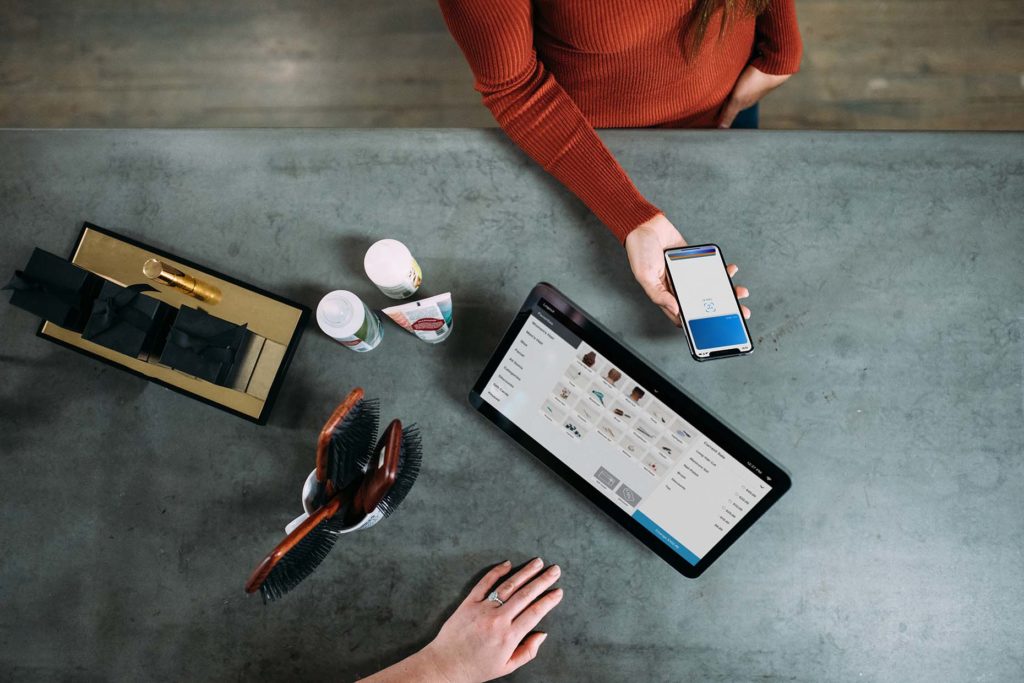Business credit cards are used by many business owners to track company spending, but how exactly do they work? And is there a better alternative?
Getting started with a business bank card
As a small business owner it’s imperative to keep your personal and professional finances separate. Particularly if you’re just starting out, it can be all too easy to become so involved with your business that your own money becomes entangled with that of the company. Without the appropriate business banking practices, this can lead to a range of problems.
For many business owners and sole traders, the answer to this problem is a business bank card. But what are the rules surrounding these bank cards? Can you use them for personal expenses? And what other aspects of running a business can they affect? Read on to find out the answer to all of these questions and discover the most effective ways to manage spending.
Business bank cards as a solution
As you might imagine, business bank cards are much like personal credit cards, but their use is limited exclusively to business purchases. They’re connected to your business bank account, so it’s a simple way of keeping an eye on expenses.
After a certain period of using a business card, you’ll receive statements outlining all the expenditure for that time frame. You can then reconcile these with your own accounts and ledgers.
These cards are useful tools when it comes to business expenses, but they should not be used for personal purchases. Although there can sometimes be overlap between business and personal expenses, such as a meal out while you’re travelling to see a client, a business debit card should not be used during leisure time or for personal errands.
This can cause problems for the bookkeepers and even result in discrepancies in how expenses such as mileage claims are reported to HMRC. Not only this, but mixing business expenses with personal ones will only lead to confusion in your financial plan, and make for anomalies within business spending which can prove to be problematic when it comes to turning a profit.
Related Content: Supercharge Your Business Bank Account
But as long as you use your business bank card for its intended purpose, then it can be a useful tool. However, with these cards there is always a risk of overspending because they’re linked directly to your business bank account, so think carefully about who you trust with a card.
For a more secure way to pay, consider Soldo’s prepaid cards, which you can preload with set budgets so that spending can never spiral.
Choosing a business bank card
If you’ve done any research at all into business banking, then you’ll know there’s an enormous range of card providers to pick from. And it isn’t simply a matter of choosing between interchangeable banks, as there’s recently been an increasing number of challenger banks taking advantage of the deregulation provided by Open Banking to offer a variety of benefits aimed at attracting new customers.
Related Content: How Secure is Open Banking?
When you’re deciding between providers, be sure to check for any fees or charges that are associated with the card, as these costs can add up for small businesses. Although they should all offer the same key features, banks offer differing rules around eligibility criteria, cash withdrawals, and annual fees, for example.
With traditional high street banks, their business credit card option is an addition to their personal services, so they may not be perfectly suited to corporate use. Of course, they’re created for businesses, but they have limitations; for example, the unbridled access to the company bank account that a business credit card provides. Each business will have certain requirements that are best met by one provider, so it’s worth taking your time to discover which is the one for you.
Expense management
Keeping on top of your business expense management is important to a healthy financial profile, and business bank cards are a popular way of managing this. With a business debit card in place as the payment method, you can set out an expense policy with certain rules and processes that’s understood by each employee with access to the card or cards.
For example, each individual may be given a particular budget per month, within which they have the freedom to spend however they see fit. Once employees have made a card payment they keep hold of the receipt, so when finance teams come to do their reconciliation, they have access to all the spend data from a particular period.
Although business bank cards can be useful for this, as we’ve seen they aren’t perfectly suited to the job. It can be difficult to set limits on these cards, so spending can easily spiral, and if you’re sharing one card between the whole team then it may not be clear who has been spending. On top of this, you may not receive statements until weeks after any given transaction, meaning you’re always one step behind in your expense-tracking.
This is why prepaid cards are becoming an increasingly popular option. With Soldo’s prepaid card system and expense app, you can assign as many cards as you like, so you always know who’s spending what. And with customisable budgets and rules, there’ll never be any surprise outgoings. Prepaid cards are a great way to keep business funds under control.
Related Reading: Everything You Need to Know About Business Expense Cards
Paying yourself a salary
Expense management is one area of business in which it’s important to keep personal funds separate from those of the company. But what about paying yourself a salary? If you’ve never been a business owner before, this may be new to you.
The most simple way of paying yourself for running your business is to establish a regular, monthly payment. Don’t think of it as using a business account for personal use, but rather allowing yourself a wage in the same way your employees are paid, or that you would be paid in a business that isn’t your own.
This is also a good way of establishing consistency in your books. If you’re taking the same amount out every month, rather than dipping in whenever needs be, then it’s much easier to budget and forecast. It also makes it easier to separate the professional and personal finances. If you know exactly what you’re getting each month, then the lines between company funds and individual funds are more clear cut.
When you set this amount that you pay yourself, make sure it’s a fair one so that you can keep a handle on your finances at home as well as at work. However, if you have any doubts at all, it’s always a good idea to speak to an accountant about your options and how to responsibly manage your own salary.
Balancing the books
Of course, the end goal of all this careful money management is the eventual profitability of your business. That’s where bookkeeping plays an important part. In order to be able to analyse and alter your expenditure, first it has to be collated in a way that makes sense. Whether you’re doing the task yourself or you’ve hired an accountant, balancing the books is crucial when it comes to executing your financial plan and making sure you’re on track to meet your company’s goals.
For many businesses, using the right accounting software integrations is the easiest way of handling the books. These programmes, such as QuickBooks Online, Xero, and NetSuite, aim to automate bookkeeping and save you time when it comes to reconciliation.
Using a business card in conjunction with accounting software means you have to manually transfer the spend data from the receipts into the programme. This can prove time-consuming. Soldo’s prepaid system has seamless integrations with these software tools and any transaction will be shared directly with whichever system you prefer, saving you time and money.
The centrality of bookkeeping in competent financial management is why it’s important to reiterate that a business bank account should only be used for business purposes. Personal purchases with a business debit card have the potential to derail a healthy bank balance or slow down finance teams.
A question of tax
We’ve briefly mentioned how important keeping business and personal finances separate is when it comes to your taxes, but let’s dive into it a little more. As a business owner, you’ll need to know what your taxable profits are. As the name suggests, taxable profit is the amount you take in after you’ve complied with tax laws.
To calculate this, it’s helpful to know about some of the tax rules you’ll be adhering to. One of the examples of this is the difference between capital and revenue expenses. A capital expense is an asset you purchase in order to aid your business. This expense will be a large, long-term item, such as a computer, or any other equipment relevant to your business.
With expenses of this type, you may well be able to claim capital allowances. This means you don’t have to include the expense (or at least a percentage of its value) in your taxable profits.
Revenue expenses lie at the other end of the spectrum, being small, everyday expenses, such as office supplies. Some of these expenses may be allowable for tax purposes, but others may not. There are various online tools out there to help simplify paying taxes. For example, HMRC offers a breakdown of allowable expenses in their guide to calculating your taxable profits.
Again, with all of these expenses, they absolutely must be necessary for business activity, and cannot be for personal reasons. You can’t claim tax relief on them if not.
This just scratches the surface of taxes for your business, and it’s a subject you should thoroughly research so that your business can run smoothly. There are plenty of areas in which you can claim tax relief, which can be a big benefit to small businesses.
Streamline with Soldo
Business bank cards have been a popular way of handling expenses and making sure there’s a clear distinction between personal and business finances. However, they do have their downsides. Sky-high limits means spending can easily spiral, and keeping track of paper receipts isn’t fun for anyone.
By switching to Soldo, you can keep track of your business spending in real-time. With our intuitive app you get instant notifications the moment a transaction happens. Because each card is limited to a budget set by you, there won’t be any surprises, so you get total peace of mind. And if that budget needs to be altered, or if an employee on the road needs some extra funds, you can send them more cash with the touch of a button.
Prepaid cards mean that employees are empowered to spend, but you remain in control. They’re a great way to ensure your business spending is in line with your goals.
For all the perks of business bank cards but with complete visibility, extra protection, and greater flexibility, get started with Soldo today.










